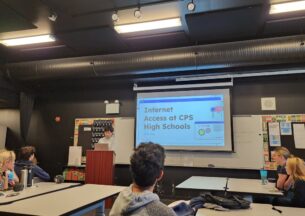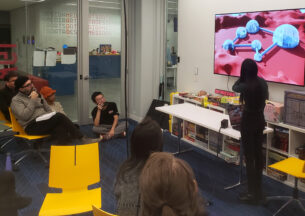Asst. Prof. Blase Ur Comments on Contact Tracing Tech for Chicago Tonight

As the world looks for safe strategies for living and working amidst the COVID-19 pandemic, most experts point to widespread testing and contact tracing to rapidly isolate and treat outbreaks. In response, tech companies such as Apple and Google have developed smartphone systems that utilize Bluetooth to automatically retrace the steps of those infected and find people that were potentially exposed to the virus. But these approaches also raise concerns about user privacy and inequal distribution of resources.
On the WTTW news program Chicago Tonight, Neubauer Family Assistant Professor Blase Ur joined (remotely) to explain this technology and discuss these issues. Appearing alongside Chicago civic technologist Derek Eder, Ur mentioned the technical and economic limitations that could reduce the effectiveness of this tech solution.
“If the hardware, and even the software, is not up to date or compatible it won’t be possible to use the API,” he said. “And there is a very real correlation between the most vulnerable and those whose devices won’t be able to access this.”
Ur notes that all one has to do is imagine the people they know in their family who aren’t using smartphones, and in many cases it is the older generation, who also happen to be particularly susceptible to the virus.
On the privacy question, Ur also asked about what the “end of life plan” is for this system after the pandemic has been controlled, and questioned whether the companies involved could resist the temptation of adapting it for commerical uses.
“Will they say, ‘Oh well, it wasn’t so bad, why don’t we use it for advertising too?’ Once you build an infrastructure, it is not so easy to resist.”












